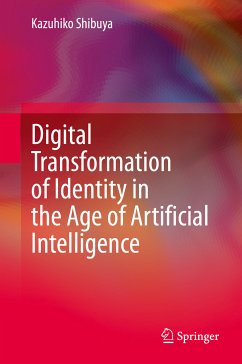This book examines the digital transformation of identity in the age of artificial intelligence. It articulates the nature of identity of human beings, based on cutting-edge knowledge in the field of AI and big-data sciences, and discusses identity by drawing on comprehensive investigations in digital social sciences and exploring wider disciplines related to philosophy, ethics, sociology, STS, computer sciences, engineering, and medical sciences. Reviewing contemporary conditions proliferated by advanced technological trends and unveiling social mechanisms of human identity, this book appeals to undergraduate and graduate students as well as academic researchers.
Dieser Download kann aus rechtlichen Gründen nur mit Rechnungsadresse in A, B, BG, CY, CZ, D, DK, EW, E, FIN, F, GR, HR, H, IRL, I, LT, L, LR, M, NL, PL, P, R, S, SLO, SK ausgeliefert werden.









